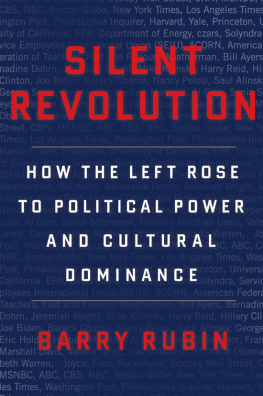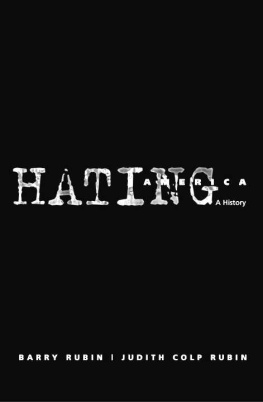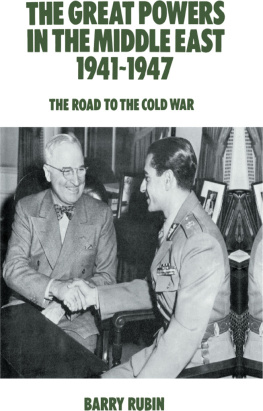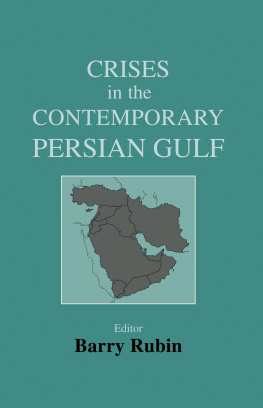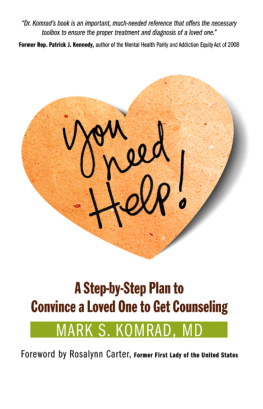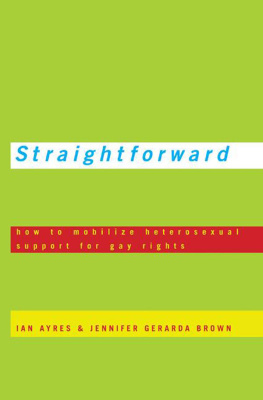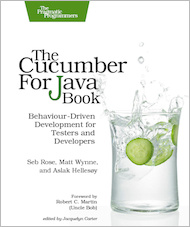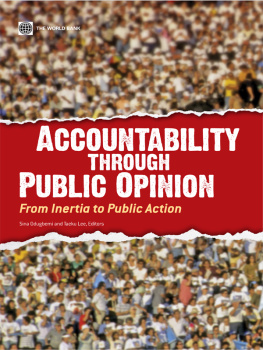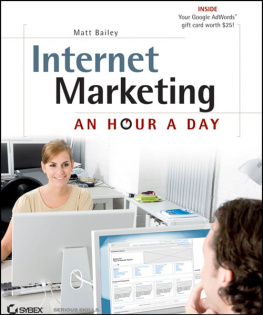EXPANDED EDITION
A Citizen's GUIDE TO POLITICS IN AMERICA
EXPANDED EDITION
A Citizen's GUIDE TO POLITICS IN AMERICA
How the System Works & How to Work the System
Barry R. Rubin
First published 1997
by M.E. Sharpe
Published 2015
by Routledge
2 Park Square, Milton Park, Abingdon, Oxon OX14 4RN
711 Third Avenue, New York, NY, 10017, USA
Routledge is an imprint of the Taylor & Francis Group, an informa business
Copyright 1997, Taylor & Francis. All rights reserved.
No part of this book may be reprinted or reproduced or utilised in any form or by any electronic, mechanical, or other means, now known or hereafter invented, including photocopying and recording, or in any information storage or retrieval system, without permission in writing from the publishers.
Notices
No responsibility is assumed by the publisher for any injury and/or damage to persons or property as a matter of products liability, negligence or otherwise, or from any use of operation of any methods, products, instructions or ideas contained in the material herein.
Practitioners and researchers must always rely on their own experience and knowledge in evaluating and using any information, methods, compounds, or experiments described herein. In using such information or methods they should be mindful of their own safety and the safety of others, including parties for whom they have a professional responsibility.
Product or corporate names may be trademarks or registered trademarks, and are used only for identification and explanation without intent to infringe.
Library of Congress Cataloging-in-Publication Data
Rubin, Barry R., 1947
A citizen's guide to politics in America: how the system works and how to
work the system / by Barry R. Rubin2nd ed.
p. cm.
Includes bibliographical references and index.
ISBN 0-7656-0627-5 (cloth: alk. paper) ISBN 0-7656-0628-3 (pbk: alk. paper)
1. Politics, PracticalUnited States. 2. Public opinionUnited
States. 3. United StatesPolitics and government. 4. Political participation
United States. I. Title.
JK1726.R83 2000
323'.042'0973dc20
00-026580
ISBN 13: 9780765606280 (pbk)
ISBN 13: 9780765606273 (hbk)
Contents
To my parents
Three years after the publication of the first edition of A Citizen's Guide to Politics in America , concerned citizens and interest groups are still fighting an uphill battle to persuade a stubborn political system to put aside partisan squabbles and solve persistent public problems. On the national level, Congress debates flag burning while avoiding larger problems such as improving education or health care. At the same time, moneyin the form of campaign contributions, grassroots mobilization, and issue advertisementshas grown in influence.
In 1994, while we argued about reforming the health care delivery system, the fictional characters Harry and Louise appeared in a flurry of industry-sponsored television advertisements. Five years later, Harry and Louise were replaced by Flo, a gray-haired senior citizen who appeared in newspaper and television advertisements on behalf of pharmaceutical manufacturers, urging the public to reject proposals to include prescription drug benefits in medicare. Each time the lobbyists won and the people lost, leaving a growing percentage of the population without health care coverage and many seniors having to decide whether to buy food or pay for their prescription drugs.
The second edition of A Citizen's Guide to Politics provides more tools to enable citizens to be effective advocates for change. It includes a new chapter analyzing the most important new advocacy tool since issue advertisements began appearing on television: the Internet. With citizens, interest groups, and elected and appointed governmental offlcials electronically linked together, the Internet has the potential to change the way advocates conduct all aspects of issue advocacy campaigns, from creating interest groups and building coalitions to mobilizing the grassroots and lobbying decision makers.
Finally, a new chapterPutting It All Togetherintegrates the issue advocacy strategies and tactics explored in the book into an analysis of one of the most hotly contested contemporary issues, gun control. It tracks the rise of gun control on our public policy agenda and the way opposing forces have mounted campaigns to support or oppose it, affording the reader an opportunity to see how all the elements of an issue advocacy campaign come together on a single issue.
Citizens, businesses, and the interest groups that represent them have the power to take back our political system and compel it to address and solve public problems; politicians alone will not do the job without an active and committed public. Now more than ever, anyone who wants to influence the way issues are decided must truly understand how the system works and how to work the system.
Politics isn't about candidates and elections, it's about solving public problems. How can we ensure that our water is safe to drink, that our schools provide quality education, that high-wage jobs do not migrate to other countries, that poor children do not go hungry, that excessive government regulation does not stifle job creation, and that crime and violence are reduced?
People have lost confidence in the ability of politicians, candidates, and the political process to solve these public problems. The public distrusts government in general and individual politicians in particular. Voters register as independents or seek out third-party candidates. They support term limits for "career politicians." They are tired of expensive, wasteful, government "solutions" that do not work and may even make problems worse.
But the problems will not go away, and the public does care. They may not like either candidate for Congress and may even stay home on election day, but they are concerned about the economy, the environment, health care, crime, and education, among other issues. The same public that opposes welfare supports helping families and children in need. Those who want lower taxes are willing to pay more if they get better schools and safer neighborhoods. People dislike government but demand police protection and clean water. They want to preserve endangered species, but not at the cost of their jobs.
And they are finding ways to make their voices heard. Increasingly, citizens, businesses, and interest groups are moving beyond the ballot box to change our public and private institutions. Occasionally, almost by accident, citizens discover the right levers to pushdefeating the nomination of an unsuitable appointee or demanding and getting increased police protection. At the same time, businesses and interest groups are becoming more sophisticated in their efforts to shape public policy, using their resources to influence public opinion and persuade decision makers.
All of this is occurring in the midst of a reexamination of government and issues. Should public schools be run by private entities? Should welfare recipients lose their benefits if they have more children while on welfare? Should women and minorities have preference in hiring? Does government regulation protect workers and consumers, or does it unnecessarily restrict businesses and cost jobs? If there is a role for government in any of these areas, should it be at the federal, state, or local level?


